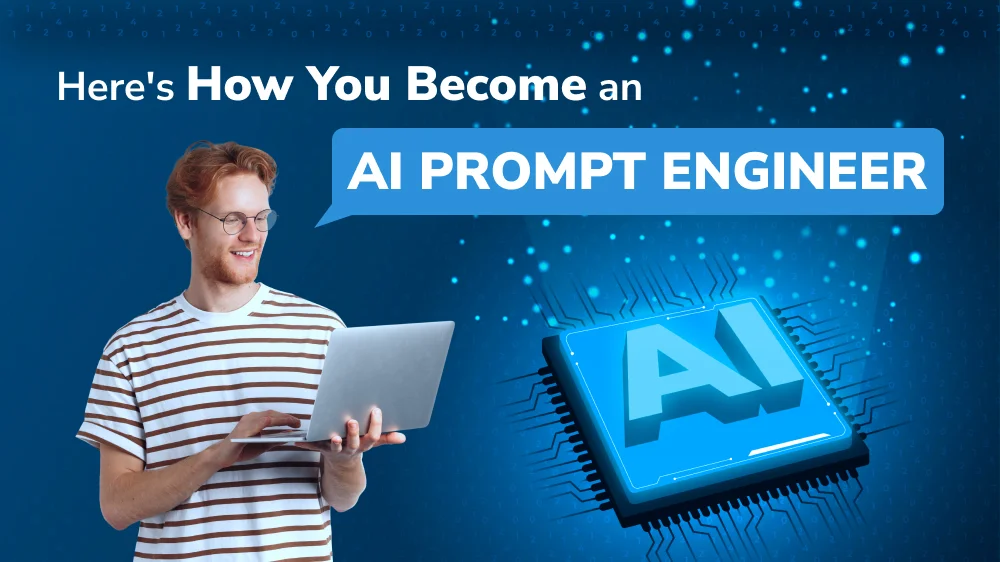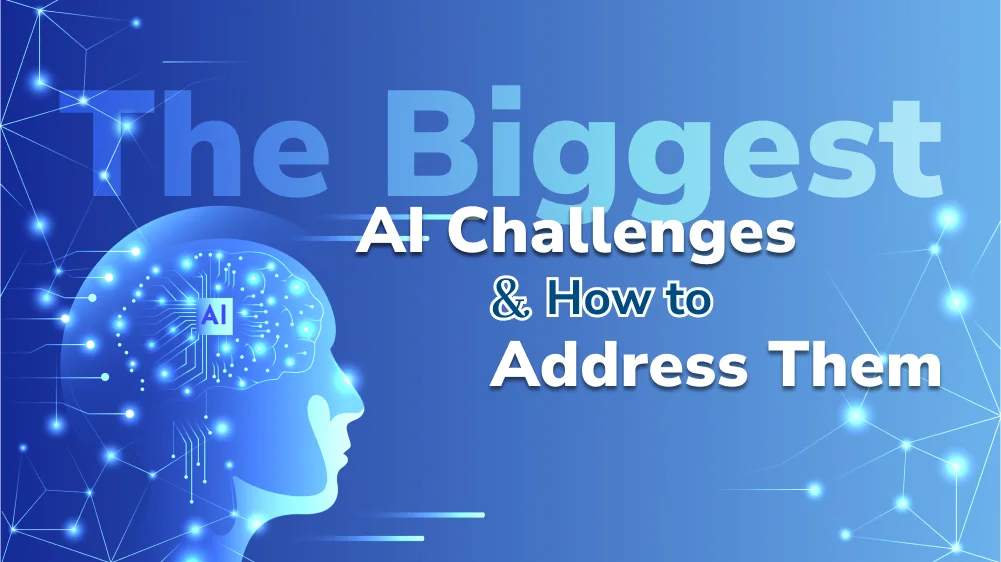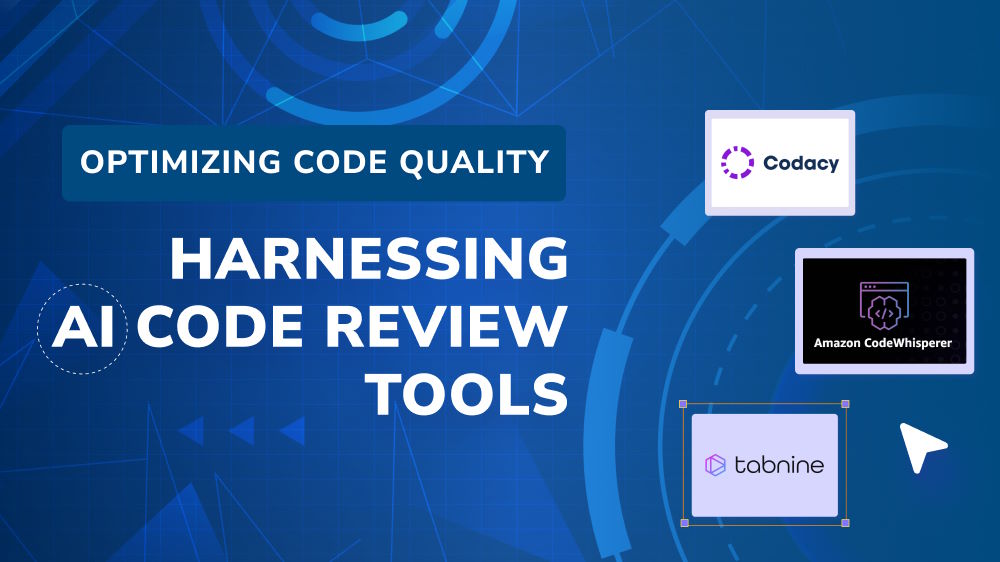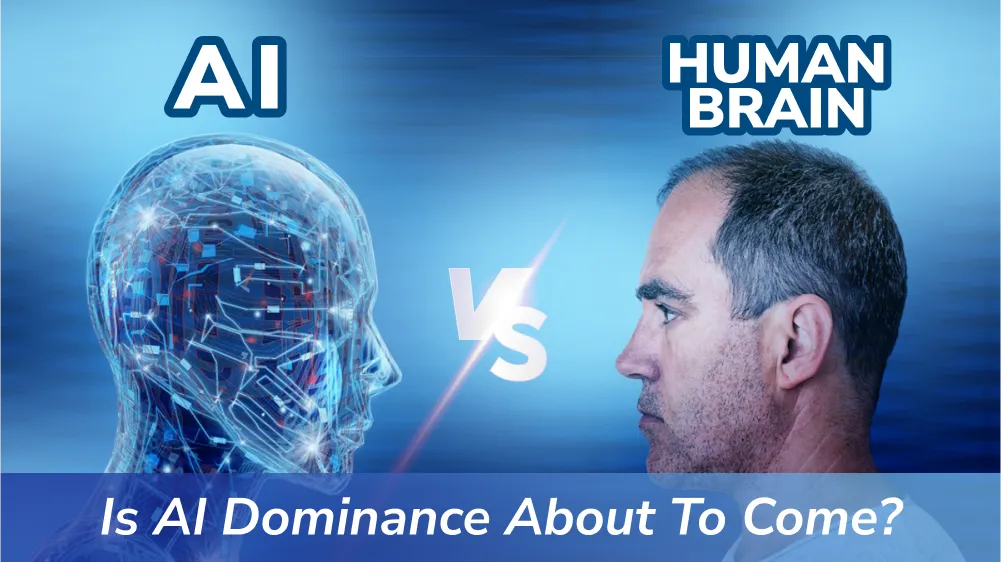
AI in Game Development: Must-Know AI Tools for Modern Game Developers

Content Map
More chaptersAccording to a recent study, the global AI in gaming market is expected to reach a staggering $11.4 billion by 2032, growing at a CAGR of 26.8% during the forecast period. This exponential growth underscores the profound impact Artificial Intelligence (AI) is having on the gaming industry as developers seek to leverage its capabilities to create more intelligent, adaptive, and personalized game worlds. From creating realistic non-player characters (NPCs) to procedural content generation, the integration of AI in game development is becoming an indispensable part of a game developer’s toolkit.
But why is AI so crucial in the video game industry? It’s simple. AI enhances the gaming experience by making it more immersive and interactive. It allows developers to create games that adapt to player behavior, making each gaming experience unique.
In this article, we’ll delve into the must-know AI tools that are shaping the future of video game development. This journey will equip you with the necessary knowledge of AI tools that are transforming the gaming landscape.
Key Takeaways:
- AI tools like Unity ML-Agents and Unreal Engine’s Blueprints Visual Scripting have revolutionized game development. They have made it possible to create more complex and dynamic games, automate various aspects of game development, and enhance overall game performance.
- AI technologies such as Natural Language Processing (NLP) for Dialogue Systems and Computer Vision and Facial Recognition have significantly enhanced game experiences. They have enabled the creation of realistic and engaging dialogues, personalized game characters, and immersive game environments.
- While AI offers numerous benefits in game development, it’s important to use it ethically and responsibly. This includes considering the potential influence of AI on players, ensuring fairness, and respecting players’ privacy and data rights.
The Impact of AI in Game Worlds
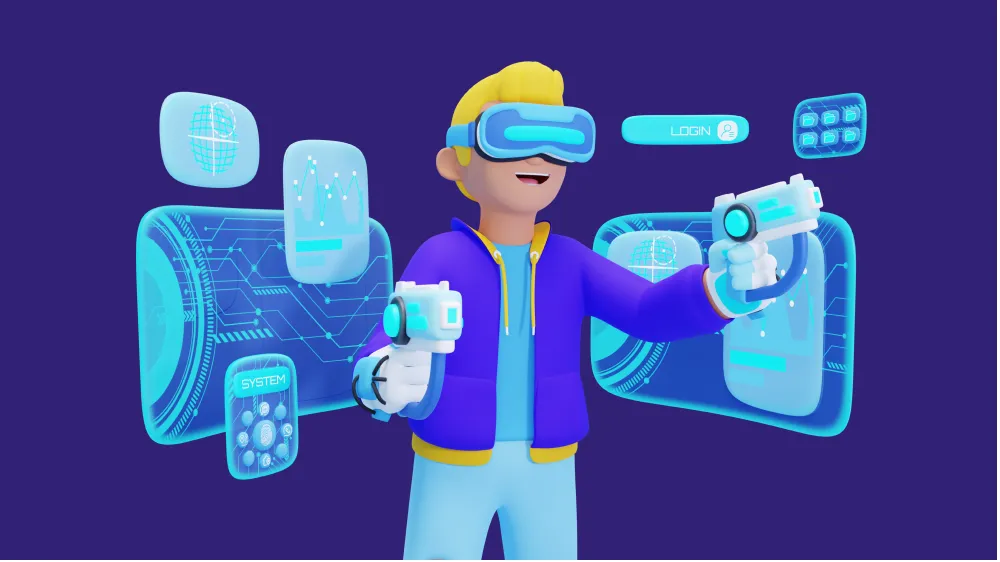
AI has revolutionized the game world and has become an integral part of the game development process. It has significantly influenced various game elements, including game mechanics, game characters, and the overall gaming experience, making it a true game changer.
AI’s impact on game elements is profound. It has enabled the creation of dynamic and immersive environments that react and evolve based on player actions. This has led to game worlds that are more realistic and engaging, providing players with unique and personalized experiences. For instance, AI can control the weather system in a game, creating random weather patterns that add a layer of unpredictability and realism.
In terms of game mechanics, AI has been instrumental in creating intelligent and adaptive opponents. These AI-controlled opponents can learn from the player’s actions, adapt their strategies, and provide a challenging and engaging gameplay experience. This has led to games that are more challenging and fun, as players must continually adapt their strategies to overcome these intelligent opponents.
The game development process has also been significantly impacted by AI. Video game developers are now using AI to automate various aspects of game development, such as level design, character animation, and even story generation. This not only speeds up the development process but also allows for greater creativity and innovation, as developers can focus more on the creative aspects of game development.
AI has also revolutionized the design and behavior of game characters. With AI, characters can exhibit complex behaviors, make independent decisions, and interact with the player and the environment in realistic ways. This has led to characters that are more believable and relatable, enhancing the player’s emotional connection with the game.
AI-Powered Game Development Tools
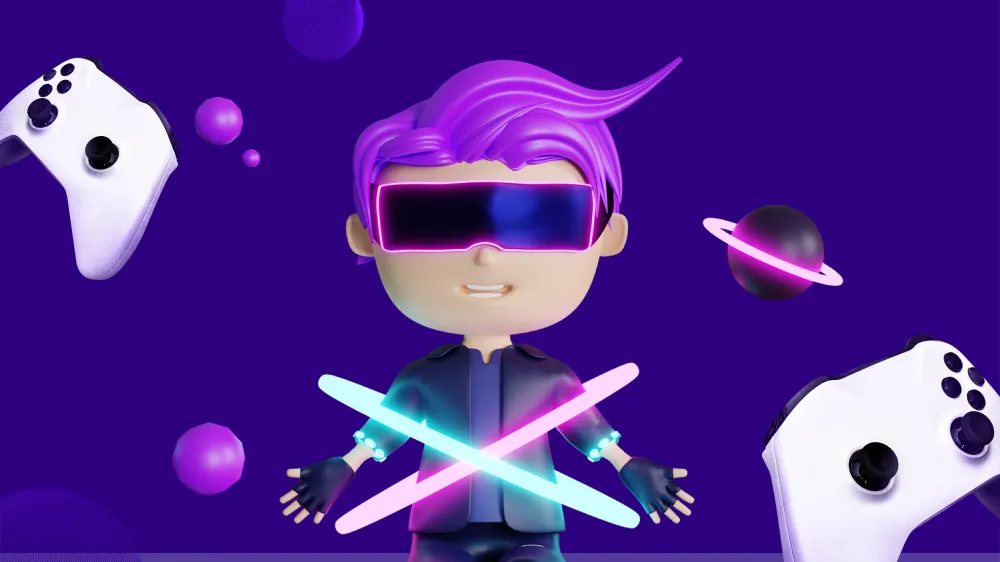
With the immense potential of Artificial Intelligence in game development, the question for modern game developers becomes: how can we leverage this powerful technology in our own projects? Fortunately, the landscape of AI tools is rapidly growing, offering a diverse range of options for developers of all experience levels. In the following, we’ll delve into some of the must-know AI tools that can empower you to craft truly immersive game experiences while enhancing overall game performance.
Unity ML-Agents
As game developers seek to create more dynamic and intelligent game worlds, the Unity ML-Agents toolkit has emerged as a game master. Developed by Unity, this open-source platform enables developers to leverage the power of machine learning to train AI agents within game environments.
The ML-Agents toolkit provides a seamless integration with the Unity game engine, allowing developers to create realistic game scenarios and train their AI agents to navigate, interact, and make decisions within these virtual environments. By leveraging reinforcement learning algorithms, the agents can adapt their behaviors based on the feedback they receive from the game world, ultimately leading to more lifelike and responsive characters.
One of the key pros of using Unity ML-Agents is the ability to train AI agents without the need for extensive coding knowledge. The toolkit’s intuitive interface and visual scripting tools make it accessible to software developers of all levels, empowering them to experiment with various machine-learning techniques and integrate them into their game projects.
Moreover, the ML-Agents toolkit offers a wide range of pre-built agent behaviors and training environments, providing developers with a solid foundation to build upon. This accelerates the entire development process and allows for quicker iteration, enabling game studios to bring their AI-driven experiences to market more efficiently.
Unreal Engine’s Blueprints Visual Scripting
Alongside Unity’s ML-Agents, the Unreal Engine’s Blueprints visual scripting system has become a game-changer for integrating AI and machine learning into game development workflows. Blueprints provide a node-based, drag-and-drop interface that allows developers to create complex game mechanics and behaviors without the need for extensive programming knowledge.
The Blueprints system in Unreal Engine enables developers to seamlessly incorporate AI-driven functionality into their games. By creating visual representations of logic, decision-making, and event-based interactions, developers can imbue their game characters and environments with intelligent behaviors that respond dynamically to player actions and in-game events.
One of the key advantages of using Blueprints for AI-driven game mechanics is the ability to rapidly prototype and iterate on gameplay ideas. Developers can experiment with different AI algorithms and behaviors without the overhead of traditional coding, allowing them to quickly test and refine their game’s AI-powered features.
Furthermore, the Blueprints system’s integration with Unreal Engine’s advanced rendering and physics simulation capabilities ensures that the AI-driven elements of the game blend seamlessly with the overall visual and gameplay experience. This level of synergy between AI and the core game engine greatly enhances the immersion and realism of the final product.
Natural Language Processing (NLP) for Dialogue Systems
As players become increasingly immersed in virtual worlds, the quality and responsiveness of in-game conversations play a crucial role in maintaining that sense of immersion and connection with the game’s characters and narrative.
By leveraging advanced NLP techniques, game developers can create dialogue systems that can understand, interpret, and respond to player input in a more contextual and natural manner. This level of AI-powered conversational intelligence allows for more dynamic and meaningful interactions, where players feel that they are truly conversing with intelligent and lifelike characters.
Beyond simply recognizing and responding to text-based inputs, NLP-driven dialogue systems can also incorporate sentiment analysis, language generation, and even multi-modal interaction, allowing players to engage with characters through a combination of text, voice, and even body language.
Computer Vision and Facial Recognition
On the player-facing side, computer vision techniques can be leveraged to enable more immersive and personalized experiences. For instance, facial recognition technology can be used to allow players to create highly customized in-game characters that closely resemble their own appearance. This level of visual personalization can deepen the player’s sense of investment and ownership within the game world.
Furthermore, computer vision can be applied to track player facial expressions and body language, allowing game characters to respond more authentically and dynamically to the player’s emotional state and physical cues. This integration of computer vision can lead to more natural and believable interactions, further enhancing the overall sense of immersion.
In the realm of game development workflows, computer vision techniques can also streamline various processes, such as 3D character modeling, facial animation, and even automated playtesting. By automating these tasks through the use of AI-powered computer vision, game studios can reduce development time, enhance the quality of their assets, and focus on the strategic and creative aspects of game design.
Best Practices for Integrating AI Tools
As game developers embrace the transformative power of AI-driven tools, it is essential to approach their integration with a strategic and thoughtful mindset. Navigating the vast ecosystem of AI-powered technologies and ensuring their seamless incorporation into the game development process requires careful planning and a deep understanding of the specific needs and goals of each project.
Identifying the Right AI Tools
The first step in successfully integrating AI into game development is to carefully assess the unique requirements of the project at hand. Each game genre, gameplay mechanic, and narrative experience may benefit from the implementation of different AI-powered tools and technologies.
For example, a role-playing game may require advanced natural language processing capabilities to facilitate engaging and context-aware dialogue systems, while a real-time strategy game may rely on machine learning algorithms to power intelligent enemy AI and adaptive gameplay. By aligning the selection of AI tools with the specific needs of the game, developers can ensure that the integration of these technologies enhances the overall player experience and aligns with the game’s core design.
Incorporating AI Seamlessly
Integrating AI-powered tools into the game development workflow requires a well-coordinated and iterative approach. Developers must ensure that the integration of these technologies is seamless without disrupting the established development pipeline or introducing unnecessary complexities.
This may involve carefully considering the technical requirements, scalability, and performance implications of the chosen AI tools, as well as establishing clear communication and collaboration channels between the game development team and the AI/ML specialists involved in the project.
Ensuring Ethical and Responsible Use of AI in Game Design
As the gaming industry increasingly embraces the power of AI, it is crucial that developers approach its integration with a strong ethical framework and a commitment to responsible design practices. This includes considering the potential biases, privacy implications, and unintended consequences that may arise from the use of AI in game development.
Developers should establish clear guidelines and policies that prioritize player privacy, promote fairness and inclusivity, and mitigate the risks of AI-driven decision-making that could negatively impact the player experience. This may involve transparency around the use of AI, providing players with control over their data, and ensuring that AI-driven game mechanics do not exacerbate harmful biases or exploitation.
The Future of Gaming is Powered by AI
For modern game developers, embracing AI technologies is no longer a choice but a necessity to stay competitive and push the boundaries of what’s possible. The tools we’ve explored in this article just scratch the surface of AI’s potential in game development. The future holds exciting possibilities like player-adaptive narratives, emotionally intelligent companions, and even AI-generated game content that continuously evolves.
Are you ready to unlock the power of AI in your next game project? Orient Software stands ready to be your trusted technical partner in this exciting journey. Our team of AI experts possesses the knowledge and experience to guide you through the integration of AI tools, ensuring a smooth and successful development process. With Orient Software by your side, you can transform your game development vision into a reality that will leave players awestruck. Let’s work together to create games that are not only fun to play but also push the limits of what’s possible with AI in game development.


